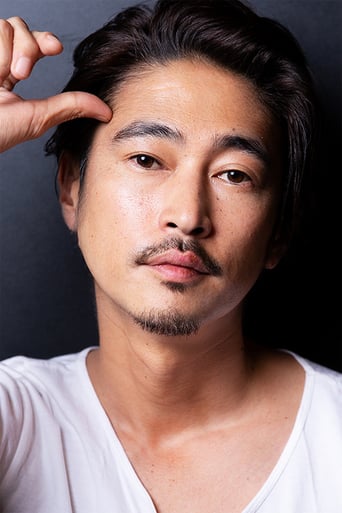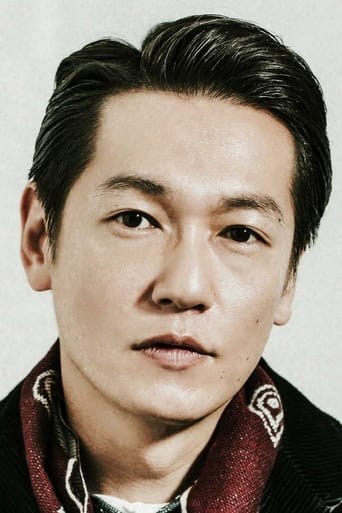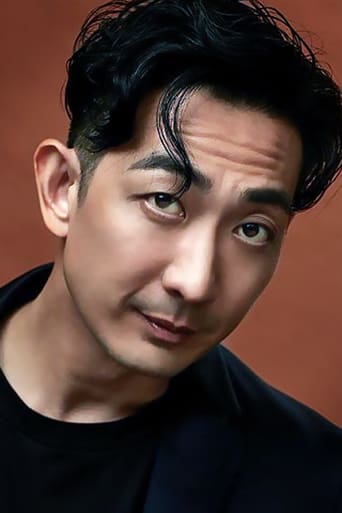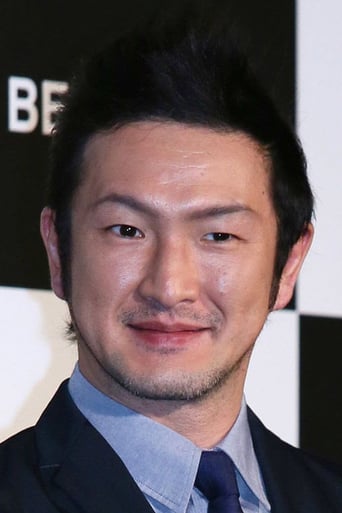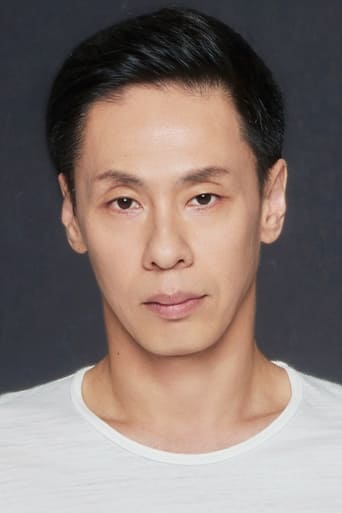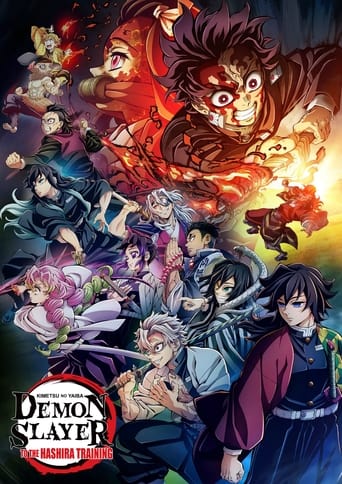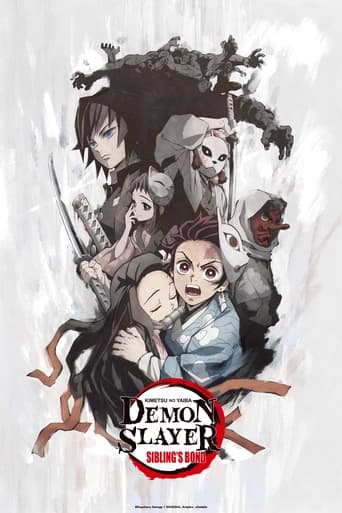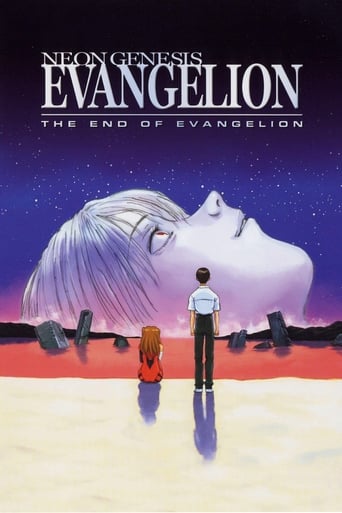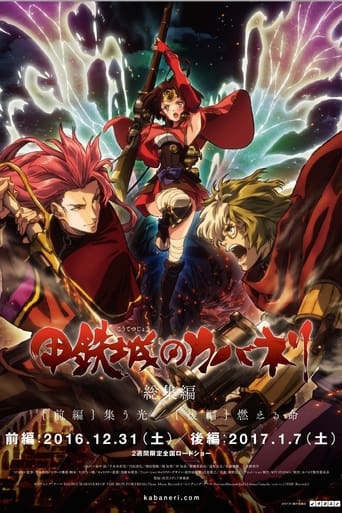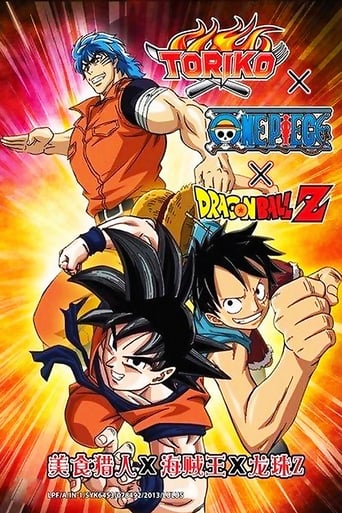bigverybadtom
The "comic book adaptation" may tend to scare people off, but this one at least made a good movie. The story is about a Japanese Ping-Pong league and the different generations of people involved in it, and how they relate to each other and how said relationships change over time.One teenage boy is a devoted serious player, but his friend only views it as a way to kill time. There is also a highly skilled player from China who seeks his fortune in Japan after he had failed at home. There are older competitors, and a onetime former master who now serves as an ad-hoc coach. You also see their superstitions (one player has a habit of hiding in toilet stalls) and how they have no real life outside of Ping-Pong. One player even drops out only to come back because he has nothing else.There are important matches, of course, but the real interest is what happens outside of them.
otaku_ariane
This movie is a superb adaptation of the flabbergasting manga series by genius Taiyo Matsumoto; the director has truly made a tremendously good work! The actors are well-chosen and very good in their role, the picture is great (a "manga-style" centring, which is very interesting) and the story never gets boring, even if the film is over two hours.I was impressed and have only very few negative comments to make, but I think they only concern things that have been lost in translation. The movie needs a certain knowledge of Japanese society to be fully understood, but is also funny to anyone who does not know much about it. Deliciously delirious!
Inakaguy
This was one of those movies that I really had to force myself to watch and ended up loving. It's a story more about the nature of friendship than the actual sport of ping pong. As with a lot of Japanese cinema, the movie takes a while to get moving, but don't let this deter you. The special effects are fantastic. Basically, I didn't even know there were special effects until I'd finished watching it. There are a few laugh out loud moments, although some of the humour requires a knowledge of Japan. My favourite moment is the boy who doesn't want to play in the tournament because his opponent is Chinese. While I should have found the ending schmaltzy, I actually found it quite touching. I have no hesitation in recommending this movie to anyone.
charlie_bucket
(Spoilers - semi-detailed descriptions of characters and central themes ahead) I just watched this little Japanese gem a few minutes ago, and it was pure joy. The movie was both funny and touching, and the two primary actors did such a terrific job that it hooked me right away. I'm usually not one for 'sports flicks', but this one stands out among a small group in that category that I actually like, where the sport is simply the backdrop to a larger ideal. In this case, there are a few strands that are developed as lessons in life, and very gracefully so - even the 'villains' of this movie are ultimately likeable.The main characters are in terrific contrast to one another - almost exact opposites - and yet their friendship is as true as any ever created on film.
On the one hand there is Peko, who is brash, cocky and tremendously talented at ping pong. His only desire, seemingly, is to crush his opponents in the most belittling way possible, and to him, being a champion is everything. He's not a bad guy at all, but his competitive drive tends to take over and sometimes overshadow his charisma and inner goodness.
Peko's life-long friend is Tsukimoto, a melancholy guy whose nickname is "Smile" because it's something he never seems to do. He is likely more naturally talented than Peko, but he feigns apathy about the game in almost all that he says, yet never quits playing it. He has no real desire to win, and he denies his abilities, and maintains this ideology to the point that he intentionally plays to lose against Peko (whose ego doesn't allow him to realize what his friend can do, even if everybody else can see it plainly). Tsukimoto derives greater pleasure from watching his friend soar than from trying to match his competitive fire or crush him. Their childhood bond is so strong that Tsukimoto has suppressed feelings of hero worship for Peko, who was there to defend him and teach him the basics of the game when they were very young. Tsukimoto is a gentle and kindly sportsman and person, but difficult to talk to and very complex. He wins when he wants to - rather, he hates the idea of ego-crushing that is so strong in any competitive event, and will intentionally lose a game if he sees that he's making a detrimental impact on the psyche of an opponent; he sees the way other people around him take Ping Pong so seriously, and he shakes his head about it. Tsukimoto ultimately takes the middle ground though, and perhaps 'rediscovers' the pleasures of the game, but we are still left wondering what's really going on in his mind.The film pulls no punches when it comes to declaring that natural talent goes farther than a strong work ethic, but talent cannot always do so alone. It strongly emphasizes the idea that talent without discipline is a tremendous waste, and will often lose the battle against a driven and tireless opponent who has talent in smaller degrees. This ideal is shown in the 'Rocky/Karate Kid' mould, with the typical "training to the beat of the soundtrack" thing that we've come to know from dozens of sports films.
But! The payoff is another thing - the training doesn't describe anything about what is ultimately accomplished, and this is entirely atypical of the Hollywood Sport experience: when we see Peko finally commit to excellence during the semi-final match - where he learns to be the hero, to "fly". It's a remarkable thing, the way the director handled this. Very poetic, very crafty, and it completely serves to make one put away any misgivings about his ego and cheer him on.The lesser characters here represent a bunch of more-or-less typical types that we might encounter in any sport, but they are far from being stock. There are a few primary antagonists, both players and coaches, but in the end their characters are not shown to be the usual, two-dimensional "bad guys" that we see in American film - we come to understand these people and we see what makes them tick - their foibles, their inner ideas, and their struggles are shown pretty vividly. The movie is squarely set up, however, to showcase the two aforementioned characters, and to show how they rise up and tackle their own problems. The true antagonists here are the dubious inner ideas that people can embrace in life, particularly after some dose of failure. One of the great things about this whole set-up is that it puts on center stage two protagonists, and pits them against one other in the end in a final game of Ping Pong. Who should the audience want to win? As the team's coach rightly says, "Root for both of them. Cheer every point", and we do.

